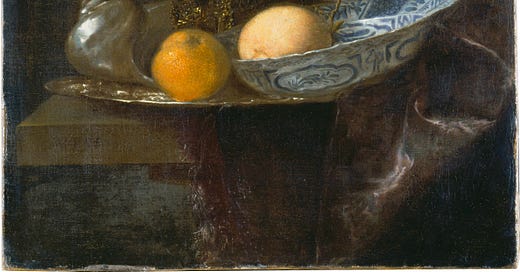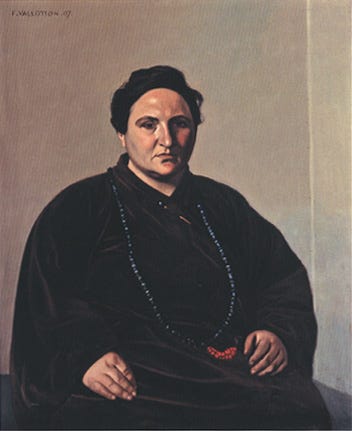November 29
Wieder Antisemitismus. Worte wider den Antisemitismus
Since the beginning of the war in Gaza, there has been a massive increase in antisemitic statements and antisemitic violence. Berlin is no exception, and it is clear that hatred against Jews has by no means been overcome, but is increasingly becoming an everyday threat, directed against the very foundations of our coexistence. Together with the Börsenverein des Deutschen Buchhandels and Suhrkamp Verlag, the event "Wieder Antisemitismus. Worte wider den Antisemitismus" wants to take a stand and invite reflection with readings and discussions.
Reading with Marcel Beyer, Tomer Dotan-Dreyfus, Tanja Dückers, Deborah Feldman, Felicitas Hoppe, Dmitrij Kapitelman, Necati Öziri, Noam Petri, Marion Poschmann, Sasha Marianna Salzmann, Geraldine Schwarz, Ofer Waldman.
Register here.
(DE)
7 pm | Staatsbibliothek zu Berlin, Otto-Braun-Saal, Potsdamer Straße 33
November 29
“Every Beautiful Poem is an Act of Resistance”
Can we find solace, and strength, in the nooks and crannies of language, of literature and poetry?
A group of poets and writers bring us together for an utterance of words, old and new, from and about Palestine. We will listen to poems, share a meal, and come together to remember, feel, mourn, and stay close.
With Najwa Ahmed, emet ezell, Tracy Fuad, Leila Boukarim and Fadi Abdelnour.
Initiated and organised by: Zilan Sarah Kößler
Bring your own poetry, it will be a moment of sharing.
Food will be provided by kulukulufood
Free admission. Register via: participate@spore-initiative.org
(EN/DE/AR)
7 pm | Spore Initiative, Hermannstraße 86
November 30
Berlin Review - Why do we live here?
«A boring, foreign city, and expensive to live in, too…»
In recent years it’s seemed that concerns about the end of Berlin might finally come true: every time another legendary club closes down, a friend runs up against bureaucratic procedures or local politics take a distressing turn, the sceptics who never believed in Berlin’s culture of freedom and experimentation in the first place add a point to their tallies. What was the point again of living in the capital of Germany?
While a migrant or an immigrant moves for urgency or necessity, seeking safety and a better life, the expat’s choices seem by comparison whimsical, or even frivolous, based on some hazy idea of «vibes» and mere lifestyle. Accused of gentrification and rootlessness, of superficiality and stupidity, the expat has transformed from a romantic figure into a villain over the last century. Who cares why he does what he does, or thinks what he thinks?
In an essay commissioned by Berlin Review, Ryan Ruby explores the conceptual conditions of expatriation and exile by reading his own experiences of Berlin through those of the Russian-American Svetlana Boym, the principle theorist of nostalgia and the off-modern. Ryan will be joined by Lauren Oyler, who examines the relationship between nostalgia, expatriation, and globalization in her forthcoming essay collection No Judgment. We will read and discuss both their writing. Moderated by Tobias Haberkorn.
Free entrance, no reservations. Limited seating capacity.
(DE/EN)
7 pm | Center for Contemporary Arts, Kurfürstenstraße 145
December 1
Book Launch: „Happy“ by Celina Baljeet Basra
Reading and talk with Celina Baljeet Basra and Daeng Khamlao.
In a small farming village in Punjab, India, a boy crouches over his brother's phone in a rapeseed field watching clips of Godard's Bande à part on YouTube.
His name is Happy Singh Soni and when he's not sleeping among the cabbages and eating sugary rotis, Happy dreams of becoming an actor, one who plays the melancholy roles; the sad, pretty boys, rare in Indian cinema. He plans a clandestine journey to Europe, where he'll finally land a breakout role.
After a nightmarish passage to Italy, Happy still manages to find relief in food and fantasy, even as he is forced into ever-worsening work conditions on a radish farm by the syndicate involved in smuggling him to Europe to pay off the supposed debt they claim he has accrued. While disillusionment amongst the farm workers rise, Happy will find the love - and tragedy - that his favourite films always promised.
At turns funny and heart-breaking, sunny and tragic, Happy is a formally ambitious novel about the psychic fissures produced by the splintering of nations, and the lovely, generative, artful coping mechanisms created by generations of diasporic people.
The artist Jasmin Parsley is creating drinks (alcoholic and non-alcoholic) with herbs from the neighbourhood – the Hansaviertel.
In cooperation with Hopscotch Reading Room
(EN)
8 pm | Hansabibliothek, Altonaer Str. 15





